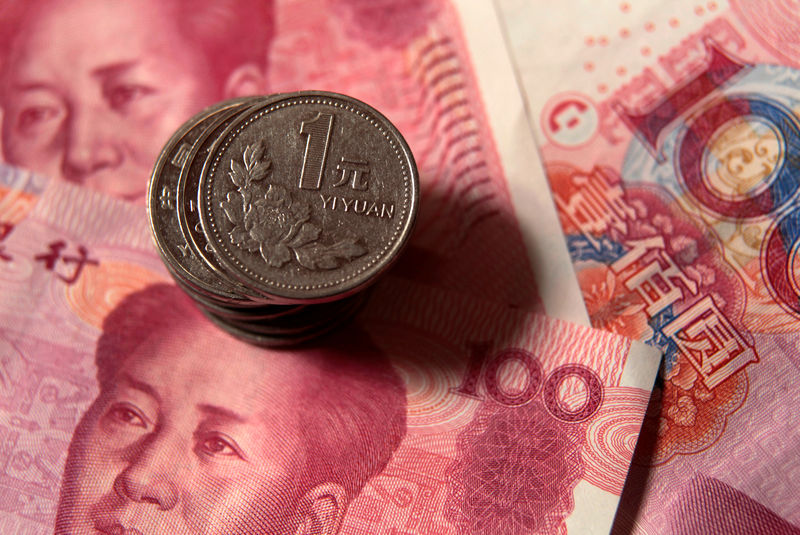Investing.com -- Policy changes in the second term of Trump presidency, including a sharp increase in tariffs on Chinese goods, could cause the Chinese yuan (CNY) to depreciate by 10% to 15%, JPMorgan analysts said.
JP Morgan (NYSE:JPM) predicts U.S. tariffs on Chinese goods could rise to 60% from the current 20%, with new levies targeting exports from Malaysia and Vietnam.
In response, China is expected to impose reciprocal tariffs, devalue the yuan, and implement policy measures to support its economy. Despite these steps, China’s GDP growth could decline by nearly 1% in 2025, JPMorgan estimates.
Emerging markets (EMs), particularly manufacturing exporters like Malaysia and Vietnam, are likely to face the sharpest impacts, while India would be impacted the least.
These countries could lose global market share as China would redirect its exports toward other EMs.
But commodity exporters may see limited effects, as China is expected to ramp up stockpiling and diversify imports through “friend-shoring” strategies.
The analysts warned that U.S. exceptionalism, through deregulation, lower taxes despite higher tariffs and reduced immigration, could weigh on emerging markets as the U.S. economy becomes more insular.
A stronger dollar and tighter global financial conditions may further strain EM growth, with sharply depreciating currencies leading to inflationary pressures in some regions. However, large domestic slack in certain economies could keep inflation subdued.
Note highlighted India and LATAM outperforming expectations, with stronger-than-anticipated economic growth.
“The main risks are that US policy changes are not incremental but extreme, China retaliates disproportionately, and geopolitics complicates the impact,” analysts noted. Still, EMs' underlying resilience could help them navigate the pressures more effectively than in past crises.
